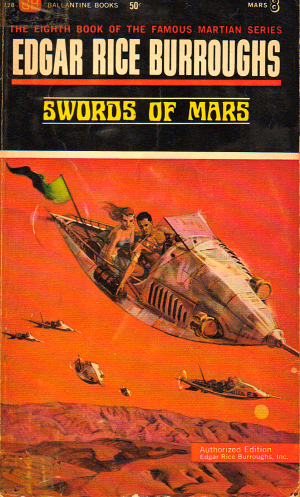
The above title proves you don’t have to be an elitist snob to sound like one. Anybody can do it.
Which reminds me, it may astonish you to learn I have received a certain amount of criticism for these columns I write for AMAZING STORIES (not least for calling them ‘columns’ rather than ‘posts’).
No doubt you are thinking “Good gosh! How could anyone find fault with the Graeme’s wit, erudition, humility, etc.?”
It’s none of that. What some fen can’t stand is my unrelentingly positive enthusiasm for all things SFnal, be it fandom, literature, or media (as per example, my equally unrelenting enthusiasm for films like ROBOT MONSTER and PLAN 9 FROM OUTER SPACE as revealed in past columns).
Perhaps my taste can be questioned. But my enthusiasm?
(However, not all my readers are critics. I’m gob smacked to announce that both I and Steve Fahnestalk have been nominated for Aurora Awards (Canada’s equivalent to the Hugos) in the ‘Best Fan Related Work’ category for our weekly Amazing Stories columns. Huzzah!
Steve and I are toying with the idea we should revive the famous Asimov/Clarke pact. When people ask which of us they should vote for, I’ll say “Steve!” and he’ll say “Graeme!” just as Asimov used to say Clarke was the best SF writer and Clarke said Asimov was the best. The kicker being they’d go on to explain their pact as will we. Self-promotion at its best… in disguise.
Be that as it may, plenty of good candidates to vote for. Voting will take place online at the Aurora Awards website from May 3rd to September 6th. Any Canadian fan may vote, but you need to sign up as a CSFFA member first (fee $10) which not only entitles you to vote for the awards but also to vote on measures tabled for the AGM in June. You may want to wait a while before voting. A voting package of nominated works by the nominees is being prepared so you will be able to download and read ALL of the works up for awards before making your decision. This voting package will be put up online at the Aurora site ASAP.
The results will be announced at VCON 39 in Surrey, B.C. (near Vancouver) October 3rd-5th, 2014, which will be hosting Canvention 34, Canada’s national convention where the Aurora Awards are presented. Please note voting will be closed as of September 6th, there will be no voting at the convention itself. But there will be an Aurora Awards banquet and ceremony fraught with pulse-pounding tension and excitement (at least for the nominees). Come and join the fun! And whether you attend or not, be sure to vote! Let the voices of Canadian fandom be heard!
This has been a self-serving promotional piece. Now back to our regular program.)
I am the sort of guy who experiences at least one epiphany per day (probably because my memory is so poor that every dredged up half-memory strikes with the force of a blinding revelation).
So it is not surprising I suddenly realized as I sat down to begin this column that there exists a simple explanation for the hostility generated by my columns which, I note, my ‘opponents’ evidently continue to read despite their low opinion of them. Hmmm. Interesting. But I digress. The simple explanation:
Theodore Sturgeon’s law:
“For every action there is an opposite and equal reaction…” Oops! Strike that. I mean:
“99% of science fiction is crud, but then… 99% of EVERYTHING is crud.”
Or words to that effect. Remember. My memory is lousy.
My point being that my ‘critics’ ignore the second part of the above sentence and take the first part way too seriously.
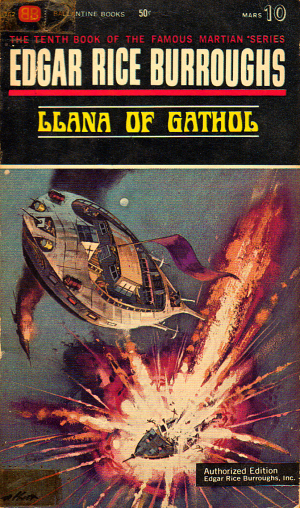
Don’t get me wrong, I have no objection if someone insists Samuel Delaney is a better writer than Edgar Rice Burroughs. Happens to be absolutely true. Delaney is very much a literary writer. Burroughs, a pulp writer.
However, in his day, in the context of his time, Burroughs was an extraordinarily popular author, more popular than Hemingway was later, for instance, Why? Because he appealed to the ‘masses.’ To the ordinary people. Not just to students and literary cultists.
Much the same can be said of Stephen King today. People like his writing. He’s not James Joyce. Far from it. He’s a very plain writer. Very accessible. One of the secrets of his success.
Now, it happens I like James Joyce’s writings. Interesting stuff, if somewhat boring most of the time. Samuel Delaney? Unfortunately I’m not sophisticated enough to appreciate his technique. Hemingway? A seemingly plain writer, but inserts into his minimalist style excellent character studies and human behavior observations. Kind of addictive actually.
Joyce. Delaney. Hemingway. All superb writers. All members of the one percent (applied to literature in general). Authors modern SF writers should imitate?
Yes. No. Maybe. Sort of. Or perhaps I should say, yes, but not JUST yes…
I suppose some authors write strictly for peer approval and praise from academic critics, the concept of actually earning a living because of popular appeal apparently being a low priority with them, but what they are really doing is ignoring the 99% ‘crud’ (or non-literary) market which, in my opinion, happens to include 99% of the potential readership. I have no idea if that’s true, but it sounds neat and tidy. Besides, the majority of fen I know read SF&F not because they seek ‘quality’ literature but because they want to enjoy a ripping good yarn. So I suspect my made up (for the sake of hypothetical argument) figures are true in spirit if not in fact.
That’s what the cultists forget. The relationship of readers to writers is NOT a bunch of awestruck students seeking to learn immortal wisdom from a great sage, but rather a bunch of bumptious kids scattered about a campfire under a starry night listening to a master storyteller weave a really cool and entertaining tale.
In other words, the majority of readers out there want to have fun reading. Authors forget this at their peril.
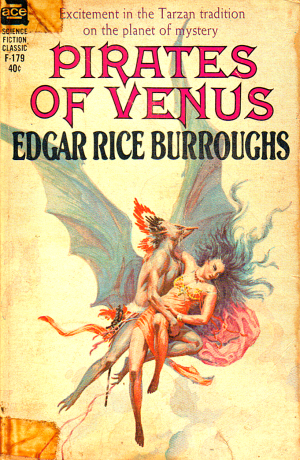
So what am I suggesting? That authors write down to the mass audience? Dumb their work down? Write with cynicism and contempt for their readership?
Certainly not! I’m an enthusiast, not an idiot (or much of an idiot). There’s no reason why authors can’t do both! Cultivate a mass readership through the sheer excitement and fun of their tales, AND push the brilliance of innovative literary technique to heights never before seen. Why not? I imagine that makes for an exciting and stimulating challenge.
I also tend to believe most authors do this as a matter of course already, constantly tailoring their manuscript to suit the needs of the target audience and/or the expectations of their eager fans, while at the same time continuously experimenting, continually expanding the boundaries of their past habits and practice in writing. Maybe I’m naïve, but I like to think that that is what professional writing/literature is all about.
And that’s why I think of SF lit as a whole rather than a 1% VS. 99% phenomena. I don’t see a divide.
Believe me when I say that I don’t have a beef with any SF writer no matter what the level of their ‘quality.’ I depend on their imagination to stir my sense of wonder. And if they can manage that, I’m satisfied, even if their writing is not ‘perfect.’ It doesn’t have to be perfect. Coming up with delightful ideas is good enough for me. Full marks for effort. And if a writer steadily improves and matures, excellent! That’s exciting. That generates anticipation. An eagerness to see what the author comes up with next. Makes being a reader a thrill.
I just have a beef with people who regard the one percent as modern literary icons (which is accurate enough) but who also insist on looking down at someone like Edgar Rice Burroughs as utterly beneath contempt, someone who deserves to be mentioned only with an accompanying sneer, and worse, who believe anyone who actually enjoys Burroughs is even further beyond the pale than Burroughs himself.
I admit Burroughs is hard to read today. Not so much because of his limited style but because what he writes about comes across as a compendium of extremely boring clichés. Sword wielding heroes fighting thuggish villains armed with ray guns over a presumably virginal princess in the name of perpetuating a beloved monarchy? That sort of thing doesn’t appeal now, unless approached from an original angle and drenched in humour (since it’s so darned hard to take the century old clichés seriously).
Nowadays it is impossible to convey how fresh and innovative and thrilling Burroughs was to his contemporary readers. Oh, it was mostly the stuff of fantasy, of fairy tales going back to the dawn of time. True enough. Part of his appeal actually. And he wasn’t even the first to combine fantasy with SF. But he was the first writer doing it to explode into the popular imagination.
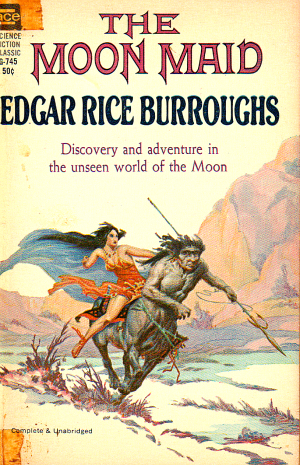
Why? Because he was lousy at making a living, but was a first class daydreamer. Eventually he started writing out his daydreams. And caught on. Life was a hard scrabble existence. To suddenly be drawn into a world that was part fairy tale, part adventure, part futurism (cough, cough), and entirely dreamlike was both exalting and soothing for his readers. You might say they NEEDED to read fantasy like this. Were desperate for it. Call it therapy.
If you’re going to read Burroughs, I insist you read him in the context of his times. Otherwise you just won’t ‘get’ it. You’ll wind up thinking his fans must have been morons. And that is NOT true. Never was.
So, when it comes to literature, while there is nothing wrong in striving for optimum quality and innovative originality (that’s a darn good thing, actually), a writer shouldn’t take the task so seriously that all the fun is drained out of the resulting manuscript as if the author had spent an hour sucking on lemons before sitting down to write.
A writer can be entertaining by dint of simply being incredibly interesting to read, by presenting concepts fresh and new to the reader’s minds, by exposing readers to honest-to-Ghu mental STIMULATION, by setting the reader adrift over an intoxicating landscape of scintillating technique (or even better, coruscating technique), but that only goes to show that there has to be entertainment of SOME kind. Otherwise the work in question will be perceived as turgidly boring and the author’s name will be struck from the reader’s list of “must reads.” That’s a bad thing.
So, yes, some writers are better than others, but I prefer to remain positive when discussing ANY author (heck, I managed that even when reviewing Ed Wood’s HOLLYWOOD RAT RACE last column) but only because I love the genre, want to celebrate and promote the genre, and believe stressing what’s good is a far better promotional tool than an orgy of nitpicking termite-like at perceived faults and failures. But that’s just me. I’m a promotional tool kind of guy… (or some sort of tool…)
Likewise my attitude to fandom.
Bit of a minefield this.
Some fans apparently assign the highest priority to defining and redefining fandom and all things fannish in endless circular arguments. Pointless arguments I say.
I’m guilty of the same, especially over the last couple of years during which I attempted to define fandom to my own satisfaction. I achieved my goal. Consequently, as I wrote in a recent article of mine published in both Ad Astra Apa and my perzine Space Cadet:
“Let us begin at the beginning!
Ah yes, the laborious and mind-numbing task of defining (in a definitive manner I might add) a precise definition of what fandom is definitely all about and what a fan (as defined by a delineator) really is…
Screw it. You’re a fan. You know what you are. So let’s cut to the chase…”
Exactly. If you think of yourself as a fan of SF&F, you’re a fan of SF&F, you’re a genuine fan.
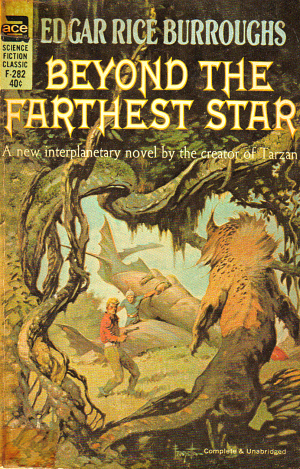
I was, in my youth. I didn’t know anyone else who shared the same interests. I was on a one-boy quest for all things sfnal, be it comic books, bubblegum cards, models, pocketbooks, TV shows or movies. I knew what SF was. I knew what I liked. I knew I was a fan.
But some fen dispute this. I was not a ‘genuine’ fan, just a kid who liked SF&F stuff. To them such ‘fans’ are mere consumers, not fans. Only fen who live up to the habits and practices laid down more than half a century ago are ‘legitimate.’ The 99% of fen who know nothing about the history of fandom and love SF&F anyway don’t count.
Put it this way: for a young modern fan, meeting this type of exclusionary-minded fan is like being trapped at a family reunion with a roomful of great uncles who not only criticize his hair style but proceed at great length to explain the intricacies of using hair oil to achieve the ideal slick and shiny George Raft look.
At which point the young fan rather understandably asks “Who the f**k is George Raft and why should I imitate him?”
Now the elders are aghast. But it’s their own fault. They’re stuck in the past. Times have changed.
In short, as with SF literature, I see fandom as a whole and reject the 1% VS. 99% concept. I refuse to see a divide. Fans is fans. Anyone who loves SF&F is a fan. This I firmly believe.
Thus I chose to celebrate all aspects of our multi-faceted genre and its multi-faceted fandom.
P.S. I mentioned Burroughs, so stuck in a bunch of old cover illos cause I like em. Cause I’m a fan.



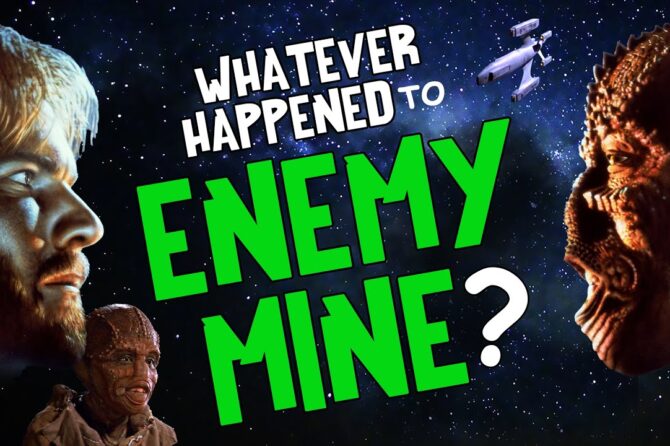

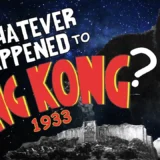
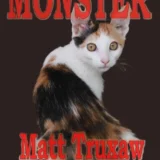



Other than feeling a mite sorry for the squid there’s a scene I’d like to see! 🙂 I think I’d compare Burroughs to Zane Grey; they may have based their worlds on different things but they both came up with environments you got to know as well as you did your own, and portray exciting adventures therein.
Well, I find Burroughs easy enough to reread. Certainly better than Dos Passos or (slightly earlier) Henry James. I would rather juggle live squid in a laundromat than reread “Portrait of a Lady”.
The author I’d compare him to would be Dickens.